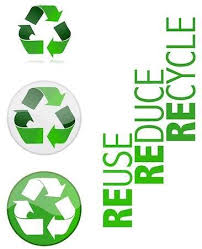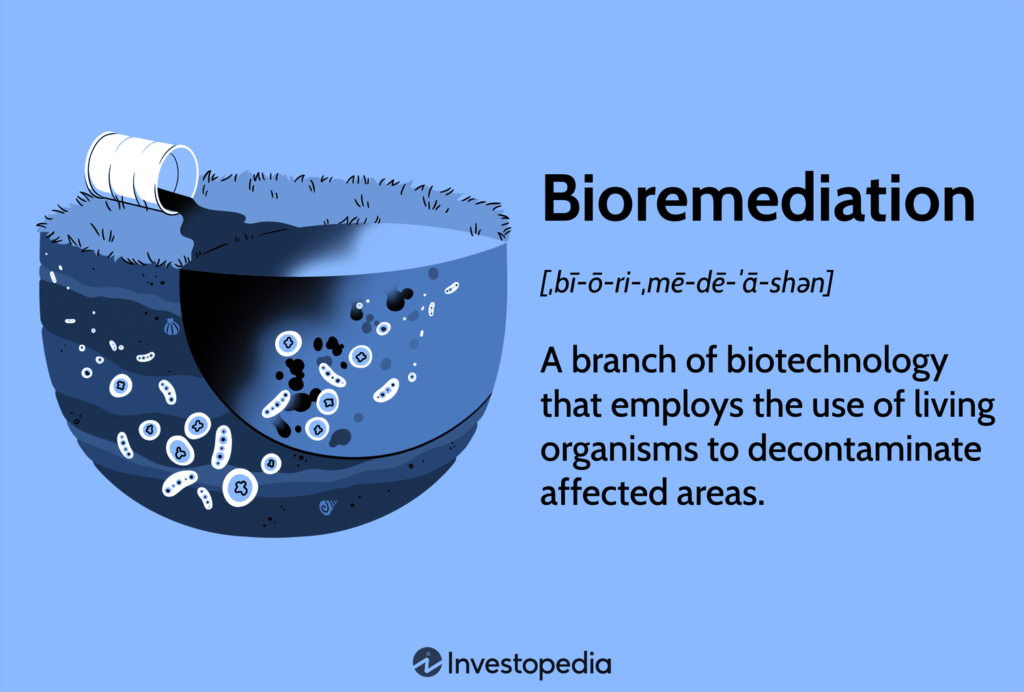Authors: Yahaya Sumara Sulley1, Lydia Quansah1,2 Shamsiyatu Murtala2 & Sena Abla Zonu2
Department of Forensic Sciences, Faculty of Biosciences, University for Development Studies, Tamale – Ghana
Department of Biotechnology, Faculty of Biosciences, University for Development Studies, Tamale – Ghana
Environmental pollution is one of the most significant challenges that the world is facing today. It poses a threat to the health of the citizens of every nation, including Ghana. Environmental pollution in Ghana is mostly been caused by various factors, including industrialization, improper waste disposal, and a lack of sustainable approaches to managing this challenge. Without addressing these factors, a clean Ghana will remain out of reach.
Ghana’s environmental pollution problem has been tackled through various methods, but more needs to be done to achieve a clean Ghana. One such approach is biotechnology, which offers sustainable alternatives to industrialization, providing clean energy production and further addressing the pollution issue.
Environmental pollution is a severe threat to the health of Ghanaians (1). The industrialization process has been one of the significant contributors to pollution. The industries emit contaminants that pollute the air, water, and soil. The pollutants released into the air cause respiratory diseases, including asthma, bronchitis, and lung cancer in vulnerable populations. Water pollution caused by industrial waste harms the aquatic ecosystem and poses health risks to humans who rely on these water bodies for their daily use. Soil pollution leads to decreased agricultural productivity, which affects food security, causing malnutrition and other related illnesses.
Efforts to create a clean Ghana
The Ghanaian government has taken several measures to tackle the environmental pollution issue. One of the most significant steps has been the development of policies and laws to regulate pollution. The Environmental Protection Agency (EPA) of Ghana was established by an Act of Parliament (Act 490) in 1994. The agency is responsible for ensuring the protection and sustainable use of Ghana’s natural resources and the environment, and for coordinating environmental policies and programs in the country. The EPA also regulates and enforces environmental laws and standards, provides environmental education and awareness, and promotes sustainable development practices. Aside from that, several policies and initiatives have been implemented towards the drive needed to make a clean Ghana. Here are some of them:
National Sanitation Day: The government of Ghana instituted a monthly National Sanitation Day in 2014 to promote good sanitation practices and to encourage Ghanaians to clean their surroundings. The day involves a nationwide cleanup exercise for about three hours on the first Saturday of every month (2).
Environmental Sanitation Policy: The Environmental Sanitation Policy was developed in 2010 to provide a framework for addressing environmental sanitation challenges in Ghana. The policy emphasizes the need for behaviour change, community participation, and the provision of adequate sanitation facilities (3).
Plastic Waste Management Policy: The Plastic Waste Management Policy was developed in 2015 to provide a comprehensive approach to the management of plastic waste in Ghana. The policy focuses on the reduction of plastic waste through recycling and the promotion of alternatives to single-use plastics (4).

National Waste Management Strategy: The National Waste Management Strategy was developed in 2010 to provide a roadmap for the management of all forms of waste in Ghana. The strategy focuses on the implementation of a sustainable waste management system, including waste reduction, segregation, collection, treatment, and disposal (5).
National Biodiversity Strategy and Action Plan: The National Biodiversity Strategy and Action Plan was developed in 2016 to promote the conservation and sustainable use of Ghana’s biodiversity. The plan includes measures to protect ecosystems, promote sustainable land use practices, and raise public awareness about the importance of biodiversity (6).
The government has also encouraged industries to adopt clean production methods and reduce their pollution levels to help clean Ghana up. The EPA for instance on many occasions have conducted regular inspections of factories and enforced regulations on waste disposal. The government has also implemented programs to encourage proper waste disposal and recycling to reduce the amount of waste that ends up in landfills. But, unfortunately, the levels of pollution continuously rise day in and day out.
How Biotechnology can Help in Achieving a Clean Ghana
Biotechnology can play a vital role in achieving a clean and sustainable Ghana. One of the significant contributors to environmental pollution in Ghana is industrialization. However, biotechnology solutions offer alternatives that can significantly reduce pollution levels. For example, biodegradable plastics are a sustainable alternative to traditional plastics, which take hundreds of years to decompose (7).
Biotechnology offers various solutions that provide clean alternatives to industrialization. One of the most significant contributions of biotechnology to clean energy production is the development of biofuels. Biofuels, which are produced from biomass such as agricultural waste, forestry residues, and algae, offer a renewable and sustainable alternative to fossil fuels (7).
Biotechnology is used to convert biomass into biofuels through processes such as fermentation and enzymatic conversion. Biofuels can be used in transportation, electricity generation, and heating, and can significantly reduce greenhouse gas emissions, air pollution, and dependence on fossil fuels (8). Biofuels are an excellent example of a biotechnology solution that can be used to reduce pollution levels.

Moreover, biotechnology can aid in environmental remediation, such as cleaning up polluted soil and water. Bioremediation, which uses microorganisms to break down harmful substances, is a biotechnology solution that can clean up oil spills, chemical waste, and other environmental contaminants (9).
Biotechnology can also be used to develop environmentally friendly products such as eco-friendly cleaning agents and natural pesticides that are safe for humans, animals, and the environment.
Furthermore, biotechnology solutions can improve agriculture in Ghana, which is a significant contributor to environmental pollution. Biotechnology can be used to develop crop varieties that are more resistant to pests and diseases, thereby reducing the need for harmful pesticides and herbicides (10). This can significantly reduce the environmental impact of agriculture while increasing yields and improving food security.
The United Nations Sustainable Development Goals (SDGs) 7 aims to ensure access to affordable, reliable, sustainable, and modern energy for all (11). Biotechnology can contribute to achieving this goal through the development of renewable energy sources such as biofuels. Biotechnology can also be used to increase energy efficiency in industries, reducing energy consumption and promoting sustainable development.
Conclusion
In conclusion, biotechnology offers sustainable solutions that can significantly reduce pollution levels contribute towards a clean Ghana while promoting environmental sustainability. The government and private sector must work together to encourage the use of biotechnology solutions in various fields such as agriculture, industry, and environmental remediation. This can help achieve a clean Ghana and a sustainable future while promoting economic development and improving the health and well-being of its citizens.
Acknowledgment
Special thanks are due to “The Biotechnology Research Interest Group 2022” of the University for Development Studies (UDS) Department of Biotechnology class of 2021 for their contribution towards the preparation of this article.
References
1. Organization Unid. Health and Pollution Action Republic of Ghana. 2019.
2. National Sanitation Day (Ghana) – Wikipedia [Internet]. [cited 2023 Apr 2]. Available from: https://en.wikipedia.org/wiki/National_Sanitation_Day_(Ghana)
3. Environmental sanitation policy [Ghana, 2010] :: IRC [Internet]. [cited 2023 Apr 2]. Available from: https://www.ircwash.org/resources/environmental-sanitation-policy-ghana-2010
4. Revised National Plastics Management Policy | Ministry of Environment, Science, Technology & Innovation [Internet]. [cited 2023 Apr 2]. Available from: https://mesti.gov.gh/documents/revised-national-plastics-management-policy/
5. Republic of Ghana National Solid Waste Management Strategy for Ghana National Solid Waste Management Strategy for Ghana. 2020;
6. National Biodiversity Strategy and Action Plan 2016 – 2021 | UNEP Law and Environment Assistance Platform [Internet]. [cited 2023 Apr 2]. Available from: https://leap.unep.org/countries/bh/national-legislation/national-biodiversity-strategy-and-action-plan-2016-2021
7. Venkatesh A, Posen ID, MacLean HL, Chu PL, Griffin WM, Saville BA. Environmental Aspects of Biotechnology. Adv Biochem Eng Biotechnol [Internet]. 2020 [cited 2023 Apr 2];173:77–119. Available from: https://pubmed.ncbi.nlm.nih.gov/31396652/
8. Zarrilli S. Global Perspective on Production of Biotechnology-based Bioenergy and Major Trends. 2018;
9. Ezeonu CS, Tagbo R, Anike EN, Oje OA, Onwurah INE. Biotechnological Tools for Environmental Sustainability : Prospects and Challenges for Environments in Nigeria — A Standard Review. Biotechnology Research International. 2012;1–26.
10. (PDF) Biotechnology and its Applications [Internet]. [cited 2023 Apr 3]. Available from: https://www.researchgate.net/publication/355977723_Biotechnology_and_its_Applications
11. The 17 Goals | Sustainable Development [Internet]. [cited 2023 Apr 3]. Available from: https://sdgs.un.org/goals
